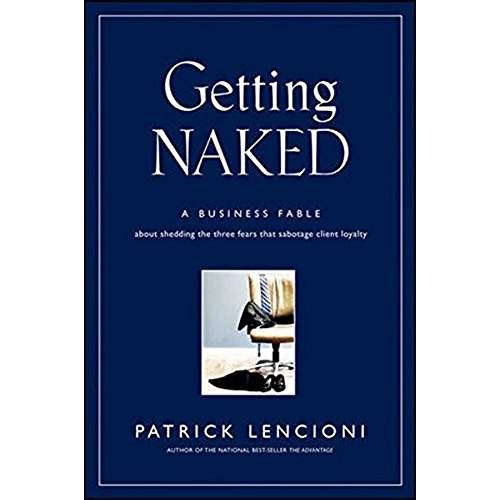|
- Home
- Resources
- Book Reviews
- March 2018: Getting Naked
Book Review - March 2018
 |
Getting Naked- A Business Fable About Shedding The Three Fears That Sabotage Client Loyalty Book by Patrick Lencioni Review by Meica Hatters Written as a fable, like many of Patrick Lencioni’s book, Getting Naked explores the challenges associated with developing client relationships. The term Getting Naked refers to the willingness to be vulnerable. For training and development professionals, vulnerability is especially important. Now, I understand that this is not what you want to hear, but stay with me. Generally, we consult technical experts on projects and learn about the experts, processes, and programs, as we work. We are confident in our ability to design, develop, and evaluate learning programs, and that is why we’re called into the room. However, we rarely walk in with the same technical expertise as those we support. When we feel that this is the expectation, fear of vulnerability sets in. As I read Getting Naked, I began to believe that Lencioni was talking directly to the Talent Development Professional (me). Lencioni presents two consulting firms: One large and one small. The larger firm (Kendrick and Black) sustained a focus on sales and winning. While the smaller firm (Lighthouse Partners) strived to be transparent and cultivate ongoing relationships. Early in the book, Kendrick and Black purchased Lighthouse Partners Consulting, and were surprised by the Lighthouse Partners’ approach and shocked by their success. Lighthouse Partners’ consultants were open with clients about their ignorance, asked questions to gain clarity, proposed unpopular and tough solutions, and did whatever the client needed, without regard for looks. This small firm earned client loyalty, respect, and trust. In the book, a consultant from the Kendrick and Blanchard became a full-time consult at Lighthouse Partners to capture their secret to client loyalty. The experience was both career and life changing. Since the story is the best part, I won’t share any more details. However, I will share the secrets to Lighthouse Partner’s success. Their approach can teach us that service providers can and should strive to achieve professional level vulnerability with clients by overcoming three fears:
The book is short and goes over each fear in detail. If you’re in work situations and you do not have all of the answers, the book is a must-read. After you read the book consider challenging yourself to work through the fears and, by doing so, you just might have greater relationships with the experts you work with on a daily basis.
|
